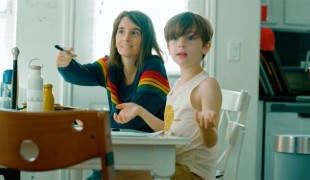- 3748
- 314
- 9
- 10
- 0
- Help Ukraine
About the solution
Luminopia is a startup company that was founded in 2017 by two Harvard University undergraduate students, Scott Xiao and Dean Travers. The company was established with the goal of developing treatments for visual and cognitive disorders, such as amblyopia or lazy eye, using virtual reality (VR) technology.
Their main product, LumiThera, is a VR-based therapy platform that provides customized therapy sessions to patients with visual and cognitive disorders. During the therapy sessions, the patient wears a VR headset and performs a series of visual tasks and exercises designed to stimulate and challenge their visual processing abilities. The VR environment is engaging and interactive, which helps to keep patients motivated and engaged during their therapy sessions.
The technology behind LumiThera is based on the principle of neuroplasticity, which refers to the brain's ability to reorganize and adapt in response to new stimuli. LumiThera aims to improve patients' visual processing abilities and overall visual function by providing them with stimulating and interactive visual experiences.
Luminopia's technology has undergone a rigorous development process, similar to that of a new pharmaceutical product. The technology has been evaluated in three clinical trials, with over 200 patients at more than 20 hospitals and research sites across the US. A randomized controlled Phase 3 trial, considered the gold standard, demonstrated the safety and efficacy of the therapy for children aged 4-7 years.
Unlike traditional amblyopia therapies, such as patching and atropine drops, which punish the stronger eye to force the brain to pay attention to the weaker eye, Luminopia aims to teach the eyes how to work together properly. The technology is built on decades of cutting-edge research conducted by leading clinicians and neuroscientists at Boston Children's Hospital and MIT.
Story adapted from: https://techcrunch.com/2021/10/01/how-four-person-startup-luminopia-is-u...
Learn more about this innovation at: https://luminopia.com/
And follow them at their socials: https://www.facebook.com/luminopia
This solution shall not include mention to the use of drugs, chemicals or biologicals (including food); invasive devices; offensive, commercial or inherently dangerous content. This solution was not medically validated. Proceed with caution! If you have any doubts, please consult with a health professional.
DISCLAIMER: This story was written by someone who is not the author of the solution, therefore please be advised that, although it was written with the utmost respect for the innovation and the innovator, there can be some incorrect statements. If you find any errors please contact the patient Innovation team via info@patient-innovation.com
-
-
312
-
0
-
3449

Mother Eileen Lamb implemented a series of voice assistant-driven strategies to support her raising her two autistic children.
COMMUNICATION: Communicating, whether by speaking, listening, or other means
CAREGIVING
Social interaction
(SELF)-CARE: GROOMING: Personal grooming, such as combing hair or shaving
Autism
Strategy/Tip
AI algorithm
Promoting self-management
Managing Neurological Disorders
Promoting inclusivity and social integration
Improving Speech and Communication
To improve Treatment/Therapy
Preventing (Vaccination, Protection, Falls, Research/Mapping)
Caregiving Support
Child and Adolescent Psychiatry
General and Family Medicine
Neurology
Pediatrics
United States
-
-
-
423
-
0
-
4374

iCan- a father's drive for his daughter's independence from her autism diagnosis.
CAREGIVING
Social interaction
Autism
App (Including when connected with wearable)
AI algorithm
Strategy/Tip
Restoring mobility
Promoting self-management
Promoting inclusivity and social integration
Improving Speech and Communication
Preventing (Vaccination, Protection, Falls, Research/Mapping)
Raise awareness
Caregiving Support
Child and Adolescent Psychiatry
General and Family Medicine
Neurology
Pediatrics
Psychiatry
Canada
-
-
-
399
-
0
-
4754

Collaborator Pierluigi Mantovani creates Evolution Devices - solutions that aim to transform Multiple Sclerosis Management
CAREGIVING
BODY BALANCE: Maintaining body balance
STANDING UP: Standing up from a seated position
WALKING: Walking
Multiple Sclerosis
Assistive Daily Life Device (to help ADL)
Walking Aid (wheelchair/walker/crutches)
App (Including when connected with wearable)
AI algorithm
Body-Worn solutions (Clothing, accessories, shoes, sensors...)
Restoring mobility
Regaining sensory function
Managing pain
Promoting self-management
Preserving Organ Function
Managing Neurological Disorders
Maintaining Balance and Mobility
To improve Treatment/Therapy
Preventing (Vaccination, Protection, Falls, Research/Mapping)
Raise awareness
Caregiving Support
General and Family Medicine
Internal Medicine
Medical Genetics
Neurology
Physical Medicine and Rehabilitation
United States
-
 en
en